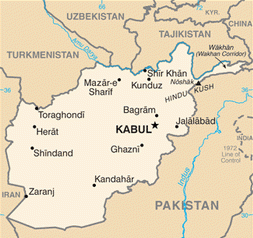The Obama administration played down comments from Secretary of Defense Leon Panetta that the U.S. could end its combat role in Afghanistan by the end of 2013, saying the original policy has not changed.
 “This was an assessment of what could happen within the context of the stated policy of NATO, which is to transfer the security lead to the Afghan security forces by 2014, and within that frame, within that timeline, the transition will take place,” White House spokesman Jay Carney told a press briefing.
“This was an assessment of what could happen within the context of the stated policy of NATO, which is to transfer the security lead to the Afghan security forces by 2014, and within that frame, within that timeline, the transition will take place,” White House spokesman Jay Carney told a press briefing.
Panetta’s statements have caused confusion in the media and some politicking from Republicans who want to paint the administration’s war policy as wavering.
“It was a surprise to me,” Intelligence Committee Chairman Mike Rogers, a Republican, said. “It is a departure.”
Despite the confusion, the stated mission has not changed. A gradual drawdown of troops is planned to begin next year, followed by mountains of money, weapons, and training by 2014 and into the foreseeable future. The U.S. “surge forces” are set to come home later this year, decreasing from some 90,000 now to roughly 68,000 by the end of 2012.
Panetta made sure to clarify that the war and a sizable occupation of Afghanistan will go on: “That doesn’t mean that we’re not going to be combat ready. We will be because we always have to be in order to defend ourselves.”
Meanwhile, nothing about the NATO mission is going as planned. The Afghan army and police, scheduled to take over the security role in 2014, are corrupt, inept, andpotentially infiltrated with insurgents. Violence keeps reaching all-time highs and U.S. and Afghan casualties continue to rise.
Furthermore, a recent U.S. National Intelligence Estimate concluded that the war was a stalemate, and a recently leaked U.S. military report found that the Taliban are set to retake power, with Pakistan’s help, after NATO forces withdraw.


